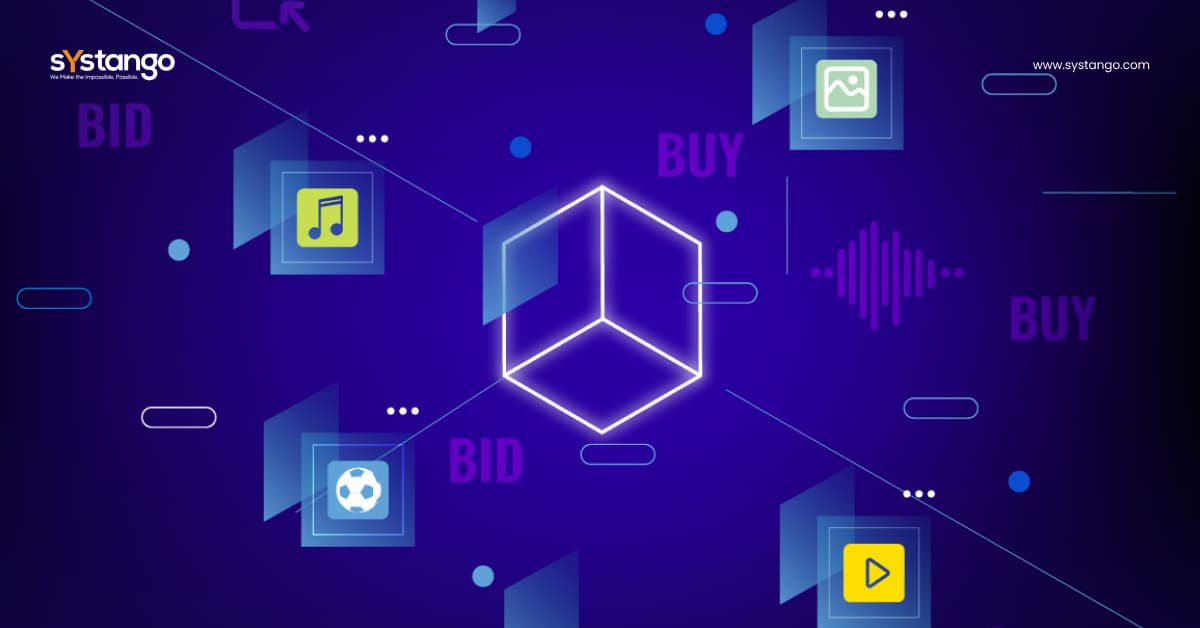How is NFT Ticketing Solutions Transforming the Events Industry?
Published on 01 May 2024

How is NFT Ticketing Solutions Transforming the Events Industry?
NFT ticketing represents a pioneering Web3 innovation that has emerged alongside the ascent of non-fungible tokens. Driven by Blockchain technology, it stands poised to transform the events industry, enhancing its ticket distribution capabilities in various ways. In the ensuing discussion, we will delve into the intricacies of NFT ticketing, elucidating its mechanics, benefits, and potential ramifications for the ticketing landscape.
Here’s what you will read about NFT Ticketing:
What is NFT Ticketing and How does it Operate?
Key Advantages of NFT Ticketing
Challenges Ahead in the Domain
Let’s get started to learn how NFT Ticketing is transforming the events industry.
I. What is NFT Ticketing and How does it Operate?
In recent times, online ticketing has profoundly impacted the events sphere.
- The advent of online ticketing platforms has empowered consumers to procure tickets from the comfort of their homes, preventing the need to contend with long queues for physical tickets.
- Concurrently, for event organisers, online ticketing has presented avenues for cost savings, mitigated logistical hurdles, and broadened their market reach and appeal.
- It appears poised to be the next evolutionary phase in this transition towards digital tickets.
“NFT ticketing platforms harness blockchain technology and smart contracts to generate tamper-proof and verifiable digital tickets in the form of NFTs.“
Here’s a breakdown of its operations:

1. Creation and Minting
Event organisers mint non-fungible token tickets on a selected Blockchain platform, associating each ticket with a unique token ID and metadata. This metadata may encompass event specifics, venue particulars, dates, seat allocations, or other pertinent details.
2. Ownership and Transfer
NFT tickets can be purchased, sold, or transferred among individuals across various blockchain marketplaces or platforms. The blockchain ensures secure ownership records and validates the authenticity of each ticket.
3. Verification and Redemption
Attendees present their NFT tickets at event venues using digital wallets or specialised ticketing platforms. Upon scanning or redeeming a ticket via blockchain-based verification, the NFT is marked as “utilised,” thwarting duplicate entries.
II. Key Advantages of NFT Ticketing
NFT tickets offer several distinct advantages over their conventional counterparts:

1. Counterfeit Protection
Compared to physical or traditional digital tickets, NFT tickets are exceedingly challenging — if not practically impossible — to counterfeit. This is owing to their storage as NFTs on an immutable decentralised ledger known as the blockchain. Additionally, public blockchains afford complete transparency, facilitating the easy tracing and verification of ticket ownership.
2. Secondary Market Opportunities
NFT tickets can be traded, sold, or bartered on secondary marketplaces, fostering a dynamic ticket resale ecosystem. Event organisers stand to benefit from secondary sales through royalty fees or a percentage of the resale value, thereby generating supplementary revenue streams.
3. Unique Experiences and Collectability
Another noteworthy aspect is collectability. NFT tickets can furnish unique experiences and collectable attributes. For instance, organisers can craft limited or special edition tickets, granting access to exclusive privileges, meet-and-greets, or backstage encounters, thereby augmenting the value proposition for ticket holders.
III. Challenges Ahead
Despite its considerable promise, NFT ticketing confronts certain hurdles and potential challenges:

1. Accessibility and Inclusivity
Effective NFT ticketing necessitates digital wallets and blockchain platforms, potentially posing accessibility challenges for certain users. Event organisers must ensure the availability of alternative ticketing options to accommodate a broader audience.
2. Scalability and Blockchain Congestion
As NFT ticketing gains traction, concerns surrounding blockchain congestion and scalability emerge. Elevated transaction volumes may precipitate slower transaction times and escalated fees, akin to the issues witnessed with centralised online ticketing platforms. This could pose a significant challenge for decentralised networks grappling with scalability conundrums.
3. Education and Adoption
The concept of NFT ticketing remains relatively nascent, and widespread adoption may entail a gradual process. A dearth of awareness and information could constitute a significant impediment.
4. Scams and Frauds
Users must exercise caution and exclusively utilise reputable platforms. This is particularly crucial given the absence of regulatory oversight in the Web3 sector, which typically translates to diminished consumer protection against scams.
Conclusion
NFT ticketing holds immense potential to revolutionise the ticketing landscape, furnishing secure ownership, scalability, and unique experiences for event attendees. As blockchain technology evolves, NFT ticketing platforms are poised to exert a substantial influence, offering innovative solutions and unlocking fresh possibilities for both event organisers and attendees alike.
Reach out to Systango for reshaping ticketing with secure ownership and unique experiences.
Related posts
Blockchain
Artificial Intelligence
Web3
Inside VoidAI: Building Cross-Chain Economic Infrastructure for Bittensor
06 Jan 2026
Web3
Blockchain
Artificial Intelligence
Inside Bittensor: How Decentralised Machine Learning Is Redefining AI Collaboration
10 Nov 2025
Let’s talk, no strings attached.